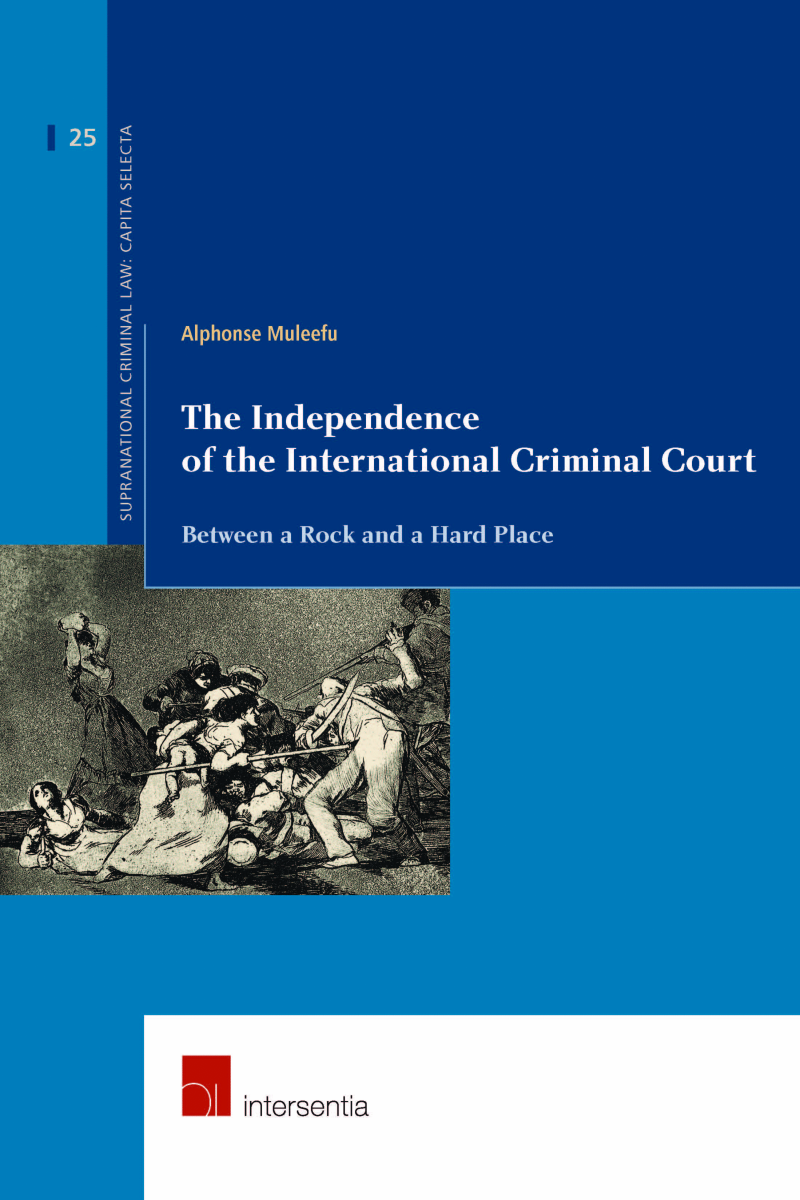 maestro
mastercard
visa
maestro
mastercard
visa

The Independence of the International Criminal Court
Between a Rock and a Hard Place

It is often assumed that the independence of a criminal court is synonymous with the impartiality of judges. However, discussions around the independence of the International Criminal Court are, in most cases, about the Court as an institution and about the work of the Office of the Prosecutor. The Independence of the International Criminal Court: Between a Rock and a Hard Place focuses on understanding the different competing narratives which defend and critique the Court’s ‘institutional’ independence and legitimacy, and particularly its relationship with Africa. Critical discourse analysis techniques are used to capture the way in which language is used to express the collective power capable of influencing the policies of the Court.
‘In assessing the ICC’s independence and legitimacy, Alphonse Muleefu is scrupulously even-handed in weighing the claims of the Court’s supporters and critics. The book’s dialogical approach enables a deep understanding of how the ICC views its role in addressing mass crimes and why the Court’s critics – especially in Africa – are so concerned about its impact across the continent. This book is nuanced, thorough and essential reading for anyone trying to fathom where the ICC finds itself 17 years into its existence.’
Dr Phil Clark, SOAS University of London
‘“The Independence of the International Criminal Court: Between A Rock and A Hard Place” provides a tremendously vivid and fascinating study of politics in action. By analysing the public speeches and written texts that mark critical moments in the court’s history, the book offers a desperately needed analysis of the place of politics in the life of the law. Alphonse captures beautifully various key discourses and sets them side-by-side forcing us to contend with the difficulties of the ICC’s relationship with Africa and their implications for understanding law in an uneven world. He also turns us to the crude realities of that world as seen in the spoken and written word, highlighting how the key challenge of twenty-first century justice analysis is not only what is done and what is said but also how those things are seen. A refreshing account of the complex dynamics of discourse. A must read.’
Prof. Kamari M. Clarke, The University of California, Los Angeles
‘Dr. Alphonse Muleefu has written a book that calls for an in depth dialogue between the critics and supporters of the International Criminal Court. It is definitely worth reading.’
Professor Dr Rianne M. Letschert, Rector Magnificus, Maastricht University
‘In his much-needed and penetrating study of the International Criminal Court, Alphonse Muleefu provides an alternative perspective on questions of legitimacy and judicial independence that avoids the simplistic approaches advocated by both the most passionate supporters of the court and its most ardent critics.’
Professor Mark Goodale, University of Lausanne
Dr Alphonse Muleefu is a Senior Lecturer at the School of Law of the University of Rwanda. Previously, he worked with the International Criminal Tribunal for Rwanda (ICTR), International Criminal Court (ICC) and Gacaca Courts. He holds a Bachelor of Laws (LLB) from the National University of Rwanda (as it was then), as well as a Master of Laws (LLM) and a Doctor of Philosophy (PhD) in Law from Tilburg University, the Netherlands.
| Type of product | Book |
|---|---|
| Format | Paperback |
| EAN / ISSN | 9781780688572 / 9781780688992 |
| Series name | Supranational Criminal Law: Capita Selecta |
| Weight | 300 g |
| Status | Available |
| Number of pages | xvi + 136 p. |
| Access to exercice | No |
| Publisher | Larcier |
| Language | English |
| Publication Date | Jul 22, 2019 |
| Available on Strada Belgique | No |
| Available on Strada Europe | No |
| Available on Strada Luxembourg | No |
Downloads
- Table of contents and preliminary pages
Alphonse Muleefu - Chapter 1. General Introduction and Some Points of Departure
Alphonse Muleefu - Chapter 2. Competing Narratives about the ICC
Alphonse Muleefu - Chapter 3. The ICC Prosecutor's Decision-Making Process
Alphonse Muleefu - Chapter 4. Between Independence and Pragmatism
Alphonse Muleefu - Chapter 5. Concluding Remarks
Alphonse Muleefu